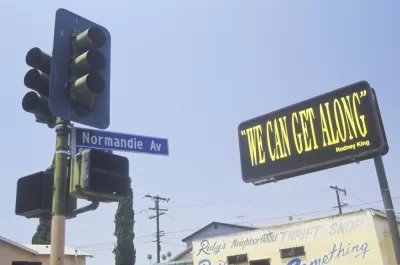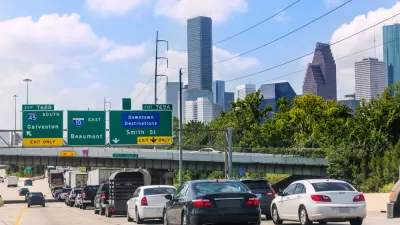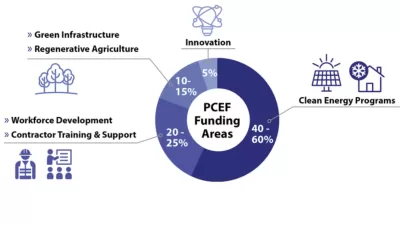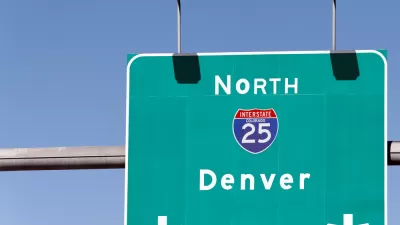Past recoveries have only exacerbated structural inequalities. The recovery from the current economic and social crises can't afford to make the mistakes, according to a recent paper from researchers at the Brookings Institution.

A new paper by Hanna Love, Tunua Thrash-Ntuk, and Jennifer S. Vey argues for a community-led action plan to address structural inequity during COVID-19 recovery.
"This paper argues that without economic recovery in communities facing disproportionate structural harm, there can be no real recovery at all. For our cities, regions, and nation as a whole to emerge stronger from this crisis, we must not only address the symptoms of disinvestment that COVID-19 has magnified, but holistically tackle their systemic root causes through locally empowering community investment."
To further those ambitious goals, the paper offers "guidance for community, city, and regional leaders to work across multiple levels of governance and policy domains—bridging community, economic, and workforce development efforts, among others—to advance community-led recovery strategies that address persistent structural inequities and expand community wealth and opportunity over the long term."
Past recoveries have only exacerbated inequality, according to the paper (a point made recently in an opinion piece about the consequences of the real estate crash and fiscal crisis of the Great Recession, when private equity firms and other Wall Street money bought up distressed real estate assets all over the country). The shortfalls of previous recovery efforts, according to the paper, can be traced to the disconnect between policy makers and community members.
"True economic recovery demands a more integrated, community-led, place- and people-centered approach—one designed to build upon community strengths and break down the structural inequities that have left communities like South LA disconnected and disenfranchised for far too long," write the authors of the paper.
Specific actions to implement a community-led approach to economic recovery follow in the source article.
FULL STORY: No more status quo: A community-led action plan for addressing structural inequity during COVID-19 recovery

Maui's Vacation Rental Debate Turns Ugly
Verbal attacks, misinformation campaigns and fistfights plague a high-stakes debate to convert thousands of vacation rentals into long-term housing.

Planetizen Federal Action Tracker
A weekly monitor of how Trump’s orders and actions are impacting planners and planning in America.

San Francisco Suspends Traffic Calming Amidst Record Deaths
Citing “a challenging fiscal landscape,” the city will cease the program on the heels of 42 traffic deaths, including 24 pedestrians.

Adaptive Reuse Will Create Housing in a Suburban Texas Strip Mall
A developer is reimagining a strip mall property as a mixed-use complex with housing and retail.

Study: Anti-Homelessness Laws Don’t Work
Research shows that punitive measures that criminalized unhoused people don’t help reduce homelessness.

In U.S., Urban Gondolas Face Uphill Battle
Cities in Latin America and Europe have embraced aerial transitways — AKA gondolas — as sustainable, convenient urban transport, especially in tricky geographies. American cities have yet to catch up.
Urban Design for Planners 1: Software Tools
This six-course series explores essential urban design concepts using open source software and equips planners with the tools they need to participate fully in the urban design process.
Planning for Universal Design
Learn the tools for implementing Universal Design in planning regulations.
Heyer Gruel & Associates PA
JM Goldson LLC
Custer County Colorado
City of Camden Redevelopment Agency
City of Astoria
Transportation Research & Education Center (TREC) at Portland State University
Jefferson Parish Government
Camden Redevelopment Agency
City of Claremont





























